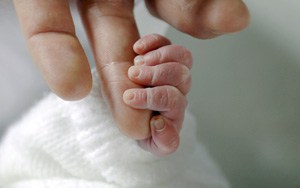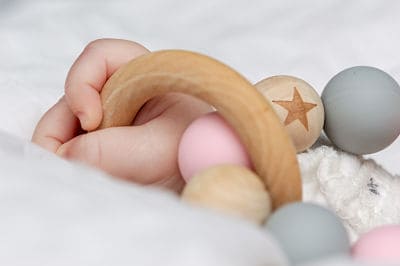 A federal agency has urged consumers to stop using all inclined sleepers because of the danger of accidental suffocation. The announcement comes in light of at least 73 related infant deaths since 2005.
A federal agency has urged consumers to stop using all inclined sleepers because of the danger of accidental suffocation. The announcement comes in light of at least 73 related infant deaths since 2005.
New Warning Follows Multiple Recalls
On November 1, 2019, the United States Consumer Product Safety Commission (CPSC) issued a warning against using any device that allows babies to sleep at an angle greater than 10 degrees. Most inclined sleepers on the market stand at an angle of about 30 degrees. The CPSC’s announcement is not a recall and does not name any specific company, but the agency cautions against using any inclined sleeper, including ones that have not been recalled.
The warning represents the CPSC’s latest response to increasing fears about the safety of inclined sleepers. The agency’s concern is based upon both a growing body of scientific research and a surge in the number of fatalities associated with the products – at least 73 infant deaths from January 2005 to June 2019. More than 1,100 incidents were also reported to the CPSC during that period.
This is not the first time recently that the agency has taken action on inclined sleepers. On April 12, 2019, the CPSC recalled about 4.7 million Fisher-Price’s Rock ’n Play Sleepers after the product had been linked to 32 infant deaths since 2009. Inclined sleepers manufactured by Kids II and Dorel Juvenile Group were also later pulled from the market.
Independent Study Highlights Suffocation Risk
In addition to the recalls, the CPSC commissioned an independent study last year from Dr. Erin Mannen, an assistant professor of orthopedic surgery at the University of Arkansas for Medical Sciences who specializes in infant biomechanics. In October 2019, Dr. Mannen’s study concluded that no inclined sleeper that her team tested was “safe for infant sleep.”
According to the study, babies are especially vulnerable to suffocation in inclined sleepers because the products appear to make it easier for them to roll into an unsafe facedown position, putting them in an exhausting fight to maintain a safe posture. The study also found that “soft and plush-like sleep surfaces pose dangers to infants” and that surfaces inclined 10 degrees or lower remove the risk of suffocation.
Mannen said in an interview that both regulators and companies could benefit from biomechanical studies, arguing that “This type of research should be done before products get to market” – something that Fisher-Price reportedly never did before creating the inclined sleeper category a decade ago.
By allowing babies to sleep at a 30-degree angle, inclined sleepers violated safe-sleep guidelines from the American Academy of Pediatrics that insist on the use of flat surfaces. As a Washington Post investigation revealed, Fisher-Price invented its inclined sleeper without conducting medical safety testing or getting advice from pediatricians. Instead, the company consulted just one doctor — a family physician from Texas whose expertise had already been questioned by judges and who would eventually lose his medical license.
CPSC Proposes Ban on Inclined Sleepers
The results of the study were included in a CPSC proposal for mandatory inclined sleeper safety rules that would effectively ban all current models of inclined sleepers. These rules would limit new sleepers to a 10-degree incline, the same limit as bassinets. Because the rulemaking process is expected to take at least several months, however, the CPSC has issued its warning advising parents and caretakers to avoid inclined sleepers in the meantime.
Additionally, the CPSC advised that the “back to sleep” and “bare is best” models are the best ways put to children to sleep, meaning that parents or caretakers should always place children on their backs and should not add blankets or pillows to their sleeping environments. The agency also cautioned against using infant car seats or bouncers to put babies to sleep.
How We Keep Companies Honest
We are surrounded by products in our modern world, from the most cutting-edge technology to something as seemingly simple as a place for our children to sleep. Regardless of their degree of sophistication, by and large we assume these products are not harmful, regulated by an American product safety system designed to protect the average consumer. But in many ways, this story highlights the breakdown of this system, as our regulators rely far too heavily on the manufacturers to regulate themselves – sometimes with tragic results.
For this reason, it often falls upon personal injury attorneys to keep multi-billion-dollar companies honest. With government agencies frequently asleep at the switch, it is only the threat of costly litigation that will force a corporation to prioritize consumer safety over the bottom line.
At GWC Injury Lawyers, this has been our life’s work – fighting for the little guy to hold corporate giants in check when the government does not. And with over $2 billion recovered for our clients over more than four decades in the business, we think our record speaks for itself.
So if you have been wrongfully injured, contact GWC today to schedule a free, no-obligation consultation with one of our Chicago personal injury lawyers. Call our office at (312) 464-1234 or click here to chat with a representative at any time.
<< BACK TO BLOG POSTS